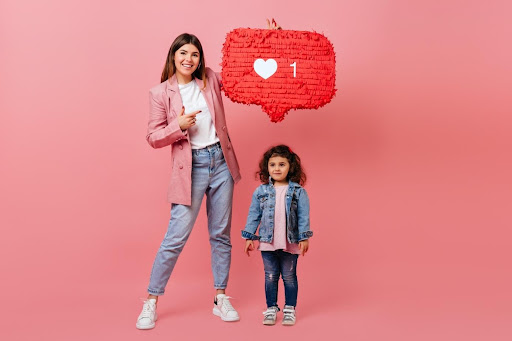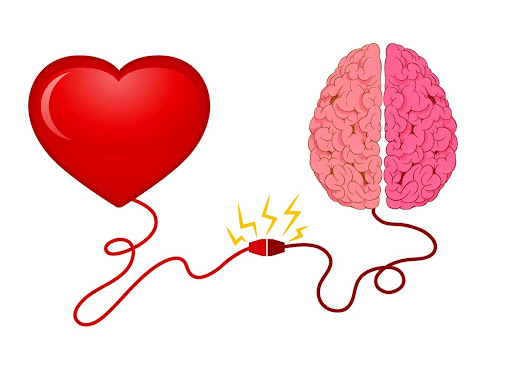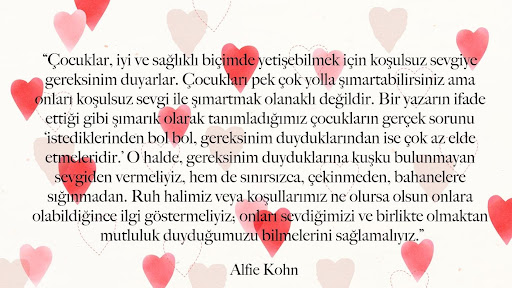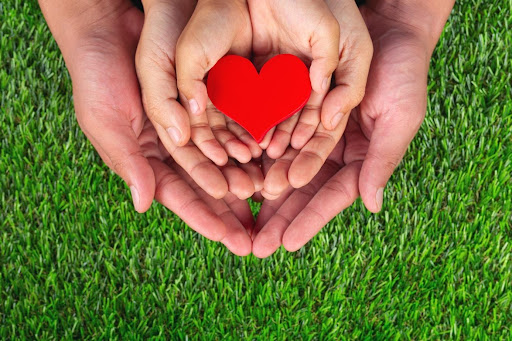What is unconditional love and conditional love?

Unconditional love is one of the most important gifts we can receive as children and give to our children when we become parents. We all need to love the most to make our journey called life meaningful. The healing power of love on mental and physical health has also been scientifically proven. So what is unconditional love? Simply put, unconditional love is loving unconditionally. Unconditional love and being loved are among the most healing forces that support people on the way to becoming better and more successful individuals.
Unconditional love is when parents accept their children as they are, love and show affection even when their children make mistakes or have poor performance in any subject. An unconditionally loving parent, no matter what happens, encourages her child, cares about her feelings and makes her feel confident, respects her child’s unique existence as an individual. In contrast, conditional love gives children the message that they “must earn their parent’s love.” For this reason, conditionally loved children feel that they must “fulfill their parents’ expectations” in order to receive love and approval from their parents. As a result, conditionally loved children tend to display anxiety and question whether they are worthy of love, even as they reach adulthood. A conditionally loving parent regularly reveals that he has expectations from his childhood in many issues, interferes excessively with his child in every matter, and does not hesitate to criticize him in judgmental language.
Childhood years are the years that need to be nurtured with unconditional love. Especially early childhood (0-6 years old) is the most important stage in which the foundations of skills and values (self-confidence, self-respect, responsibility, problem-solving, empathy, tolerance, cooperation, creative thinking, cooperation, being honest and fair, etc.) that ensure success at school and in the future are laid. These skills and values can only be acquired in a family environment where unconditional love prevails.
A child who feels loved, depending on the circumstances, is not happy. That child cannot trust himself. Because his closest parents don’t trust him enough either. A conditionally loved child faces difficulties in being successful today and developing the skills and values that will lead him to a successful/happy future. A child who feels unconditionally loved from infancy has the chance to make the right start in life and reach his true potential.
How does unconditional love empower us?
Why is unconditional love so important? It is important because it positively affects many aspects of mental and physical health. Unconditional love provides many benefits to children such as “healthier brain development, improved ability to form positive relationships, self-confidence, resilience, greater stress resistance, and a stronger immune system”.
There is a lot of pressure and stress on a child who feels conditionally loved. This stress prevents him from developing basic skills and leads to unsuccessful results even in areas where he can be successful. Conditional and authoritarian parenting sometimes can enable children to meet in kindergarten, school, or sports club with successful results. But the negative impact of conditional love far outweighs some of the successful results achieved.
Unconditional Love Supports Brain Development

Some research results can shed light on the miraculous benefits of unconditional love. A 2012 study found that children with caring parents have a larger hippocampus than those who are emotionally neglected. To clarify, the “hippocampus” is the part of the brain that controls memory, learning abilities, and responses to stress.
Joan L. Luby, Professor of Child Psychiatry at the Washington University School of Medicine and founder and director of the Early Emotional Development Program (EEDP), said: “Our research shows a clear link between emotional nutrition and the size of the hippocampus. Having a hippocampus that is nearly 10 percent larger provides tangible evidence of the powerful impact of emotional eating.”
Unconditional Love Affects Lifelong Physical Health
Withholding unconditional love can also have negative physical consequences in childhood. For example, researchers at McGill University in Montreal found that children with domineering parents—parents who love conditionally, focus too much on achievement, and rarely show affection—are more likely to be obese than children who receive unconditional love from their parents. In a study of 40,000 children aged 6-11, researchers found that conditionally loving and more authoritative parents were 37 percent more likely to have obese children.
Exposure to emotional neglect and conditional love has negative effects that extend even into adulthood. A 2013 study found that adults who lacked childhood love are more stressed and have a higher risk of illness. Researchers studied individuals who were emotionally or physically abused as children, deprived of their parents’ unconditional love. As a result, they discovered that these adults had a high risk of disease in all body systems.
These studies show that growing up with “unconditional love” in childhood has very positive effects on physical health not only during childhood but also throughout life.
Unconditional Love Lays The Foundation For The Healthy Development Of Children

Unconditional love is an indispensable value for a child to be self-confident and determined, to feel safe, to be happy and optimistic, to manage stress, and, in short, to develop mentally and physically healthy. Self-confidence is the foundation of success. The confident child is willing to boldly pursue his curiosity, explore, try and try again without giving up even when he fails. Only when children are loved unconditionally by their parents do they have the strength they need to reach their true potential and make a right start in life.
Only a child who is loved unconditionally can feel safe. Because he knows that he has “parents who will never stop loving him” even when he makes mistakes and no matter what. Mistakes are children’s most effective learning opportunities. In an environment where mistakes are tolerated, children can learn from their mistakes. In a family of unconditional love, there are strong bonds and open communication between parents and children. In such a family, children are not afraid of their parents, they share their ideas with them comfortably, they do not hesitate to talk about their problems with their parents and to find solutions by cooperating. They do not hesitate because they are sure that their parents will guide them on the right path instead of judging them and that they will not face severe punishments or a loveless attitude for their mistakes.
Parents loving their children unconditionally does not mean that parents are unruly and spoiled. Unconditionally loved children trust their parents and are convinced that the rules they set are for their own good. They have the power to develop many vital skills such as taking responsibility, problem-solving, empathy, tolerance, and communication by cooperating with their parents before school.
American author and lecturer Alfie Kohn, known for his books and speeches in the fields of education and parenting, explains in his book “Unconditional Parenting” that parents do not pamper their children by offering unconditional love: “Children need unconditional love in order to grow up well and healthy. You can pamper children in many ways, but it is not possible to pamper them with unconditional love. As one writer puts it, the real problem with children we describe as spoiled is that they “get more than enough of what they want and little of what they need.” So we must give what they need out of undoubted love, without any hesitation or excuses. Whatever our mood or circumstances, we must give them as much attention as possible, letting them know that we love them and that we are happy to be together.”

Tips for Loving Your Child Unconditionally
We know that every parent loves their children and wants them to be successful/happy, and strives to raise their children according to the requirements of the age with all their good intentions. However, this well-intentioned effort can sometimes put pressure on children and create stress by using the wrong methods and by meeting with negative emotions such as excessive ambition and anxiety. A little stress is fine, but intense stress is one of the immune system’s worst enemies and hinders the development of cognitive skills. Thinking that they will be less loved by their parents if they don’t live up to expectations is one of the biggest sources of stress for children.
Perhaps you too are unwittingly attributing your love to circumstances. Even if you have the courage to jump in front of the bus to protect your children, you may not be able to express your deep love to them properly. Parents also make many mistakes. This is natural because nobody is perfect. The important thing is to learn from mistakes, just as we advise our children to do, to try a little harder each day to be a good enough parent. Parent who recognizes and accepts their mistakes can improve their relationship with their children. He can re-establish close bonds with them.
Try asking yourself the following questions: “Do I love my child unconditionally?”, “Can I approach him with respect and empathy?”, “Does my child feel unconditionally loved?”, “Can I unwittingly give the message that I love him unconditionally?” Does she know that her frustration and sadness are just part of being human and that she can count on me to learn to manage those emotions?”, “When I punish her, do I teach her the truth or do I just increase her fears?”
Remember, our children follow the example of us parents to learn to regulate life and emotions. While offering them our unconditional love, they learn from us to empathize, to love themselves and others, to trust themselves, to show mutual respect, tolerance, to produce solutions, and to be good individuals in short.
Empathize, Accept Emotions
Empathy is unconditional love in action, looking at the world through the eyes of the other person. Empathy helps us to approach tolerance by controlling negative emotions such as anger. If you approach your child with empathy, your child will; feel loved, understood, and accepted even when his actions are under control.

Do not forget for a moment that your children are immature individuals and try to empathize with them. Every mistake they make is a unique opportunity for you to teach them the right behavior. For example, think of a time when your child had a burst of anger or was very upset. Accept these feelings by approaching them with unconditional love and empathy. There may be many reasons behind his anger or sadness. Your child may be struggling with negative emotions, perhaps because his sibling is being given more attention, perhaps because he is hungry, or perhaps because he thinks he is not as loved as he used to be. He may not know enough about these feelings yet. Your job is to teach your child that all emotions are natural and how to manage them. Instead of saying, “There is nothing to be upset about… What happened again?” you should say, “You must be very upset to talk to me in that tone. What’s going on, honey?” or instead of “Apologize to your brother right now! It is very bad behavior for you to hit him!” you should say “I understand that you are angry. Your brother knocked down your tower and you worked hard for it. But do you think it’s okay to hit your brother? He made a mistake but you know brothers are for love… Do you think you have a mistake too? I want you to think about it. If something like this happens again, what do you think you can do instead of hitting? Let’s get some practice, shall we?” When we say that, we are telling our children that we care about their feelings and that we try to understand them with our unconditional love. A child who feels understood knows he is loved and is inclined to cooperate with his parents. When your children act in anger and make mistakes, it’s best to first calm their anger and then try to limit their behavior.
When you empathize, you have the opportunity to teach your children empathy and different emotions, as well as learn the real reasons behind their behavior. Accept all emotions: being sad, happy, angry, angry, it’s all-natural. Only in this way can you make your children feel that you love them unconditionally. Show them how to manage emotions. Do not respond to their anger with anger. Take a deep breath and try to control your anger. Explain to your children that it is natural to be angry, but it is wrong to hurt themselves and their environment when they are angry. Start conversations that will help them find their mistakes on their own.
Stay Away From Punishment
Studies have proven time and again that punishments are not educational for children. Every punishment damages love, makes the child feel unloved enough, hurts him. A child hurt by punishment learns not to trust their parents and not to believe their words of love easily. In the world of children, punishments are very heavy burdens. Many studies show that children who are disciplined with love withdrawal techniques misbehave more. Parents often resort to punishments when they are helpless. Instead, it is best to try to find the real reasons behind a child’s repeated mistake.
Do not see punishments as a tool to teach your children the truth. Avoid penalties. Listen to your child with empathy and offer your unconditional love. Find a lovingly creative way to limit your child’s behavior.
Avoid Judgmental Statements
“You are such a naughty boy!”, “Why don’t you listen to me?”, “You messed up again. How messy are you!”, “How many times do I have to tell you? Do it right for once!”, “You are rude! Apologize to your grandfather now!” Negative and judgmental statements like these make children feel unloved. Constantly being blamed for their mistakes harms their self-confidence. An unconditionally loving parent avoids judging and labeling their children. Because he knows that these labels can cause great damage to the inner world of children.
Alfie Kohn in his book says that “Unconditional Parenting”: “Overall, there are many aspects of raising children that may not work for you, especially if you want to do well. If you have no intention of sacrificing your free time and want your home to be quiet, calm and clean all the time, maybe you should consider raising fish instead of children.” It’s true, parenting is hard. Getting angry and judging children without thinking is an easy solution for a parent and not a realistic solution. An unconditionally loving parent is patient.
Teach The Right Competition
Parenting has become a more difficult task than ever before, especially in today’s hyper-competitive environment. Likewise, being a child at this age has become more difficult within the framework of competition. Let’s face it, the world of the 21st century invites children to intense competition to “hurry up, be faster, achieve” even before they start primary school. We live in a world where awards, medals, good grades, great grades, being famous, and the best are presented as the only criteria for success and are applauded exaggeratedly. We are getting further and further away from the right competition. The right competition, that is, healthy competition, suggests striving to “reach your own best”, not to be “better than everyone else”. Today, parents can be adversely affected by intense competition, and some of them may unwittingly put pressure on their children. This pressure begins with sentences expressing expectations and continues with judgmental sentences if expectations are not met. While our world often leads children to extreme/overwhelming competition, the main duty of parents is to encourage their children without worrying and never giving up on unconditional love. It’s important to teach them about the right competition because they can’t control the competition—there will always be someone better than them—the only thing they can control is their efforts.
Teach your children the right competition. Teach them to set goals and strive, but don’t pressure them with high expectations. Don’t put your love on conditions. Tell them that true success isn’t just about being the best, but being honest, independent, responsible, helpful, peaceful, tolerant, empathetic, creative, productive, persevering and not afraid of mistakes is the greatest achievement. Explain that these skills will also bring them many personal successes.
Early Education: “Let’s love our children as they are, unconditionally, instead of turning them into another person!

Dear parents,
In Early Education, we are parents like you. We are sure that you already know the importance of unconditional love. In this article, we wanted to remember together the healing power of unconditional love.
Unconditional love tells our children, “I love you just the way you are. You are a unique individual. I will always support you – no matter what – to discover your own genius/talent and become a strong individual. I will never stop loving you even when you make mistakes, and I will guide you to learn from your mistakes.” Unconditional love is the greatest force that strengthens our bonds with our children, and it requires daily exercise like a muscle. We can explore creative ways to love unconditionally every day, and we can quickly move towards being better parents. Let’s not forget, we parents already love our children very much. We can do better every day to offer this love in a way that is unconditional and empowering to our children. Instead of turning our children into other people, we can recognize their unique talents and love them as they are. When we are away from our children because of our jobs and obligations, we can take care that they continue to learn and develop by feeding with compassion.
The early childhood years (0-6 years) are golden years for children to be supported with compassion and close attention to acquire vital skills so that they can reach their true potential both in school and in the future. We established Early Education to promote a pre-school education model centered on children’s uniqueness and compassion. While you fulfill your obligations related to home or work, we are here to bring your children between the ages of 0-6 “to meet with expert trainers in the comfort of your own home” and to “continue learning with a personalized education and care program fed with compassion”.
Parents and trainers who want to join the Pre-Education family or want to get detailed information about our services can reach us by filling out the application forms on our website.
